Animals
-
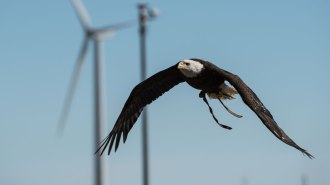 Animals
AnimalsHow researchers can keep birds safe as U.S. wind farms expand
Tracking bald eagle abundance and migrating whooping cranes provides a clearer picture of where wind turbines could be safely built.
By Jack J. Lee -
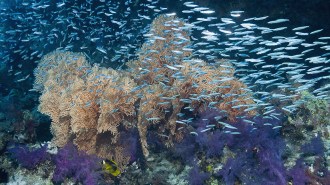 Animals
AnimalsTiny crystals give a plain fish twinkling, colorful dots under light
Fishes’ flashing photonic crystals may provide inspiration for ultra-miniaturized sensors that work in a living body.
By Susan Milius -
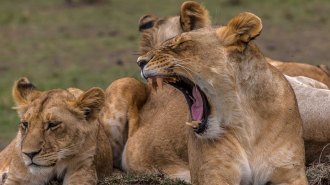 Life
LifeYawning helps lions synchronize their groups’ movements
A lion yawn is contagious, and when lions start yawning together, they start moving together. Synchronization may be key for group hunters like lions.
By Jake Buehler -
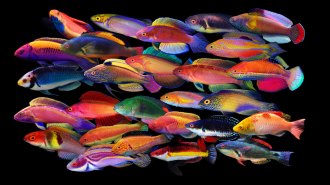 Life
LifeFlamboyant fishes evolved an explosion of color as seas rose and fell
Fluctuations in sea level due to cycling ice ages may have powered an engine in tropical seas that pumped out gaudy fish species.
By Jake Buehler -
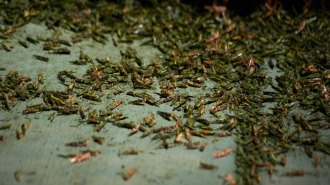 Animals
AnimalsWeather radar shows 30 metric tons of grasshoppers swarmed Las Vegas one night
Everything’s glitzier in Las Vegas. The most intensely lit U.S. city shows the impact of artificial light on insects on a megascale.
By Susan Milius -
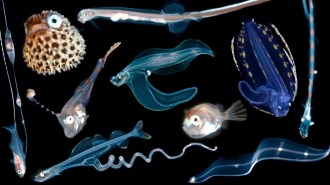 Animals
AnimalsDazzling underwater photos capture new views and scientific detail of fish larvae
Lab specimens of fish larvae are often mangled and bleached. Divers and researchers have partnered to study their rich colors and intricate bodies.
-
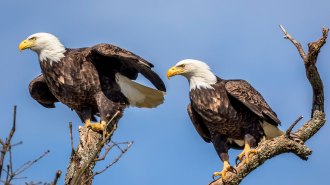 Animals
AnimalsA toxin behind mysterious eagle die-offs may have finally been found
A 20-year study of water weeds and cyanobacteria in the southern United States pinpoints a bird-killing toxin, and it's not your usual suspect.
By Susan Milius -
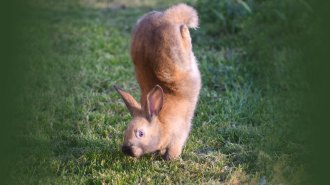 Animals
AnimalsA gene defect may make rabbits do handstands instead of hop
Mutations in a gene typically found throughout the nervous system rob rabbits of their ability to hop. Instead, the animals walk on their front paws.
-
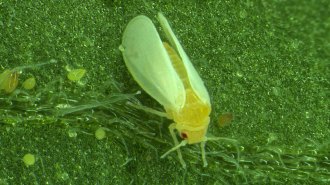 Life
LifeA plant gene may have helped whiteflies become a major pest
An agricultural pest may owe part of its success to a plant detox gene it acquired long ago that lets the insect neutralize common defenses.
-
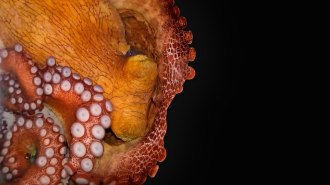 Animals
AnimalsOctopus sleep includes a frenzied, colorful, ‘active’ stage
Four wild cephalopods snoozing in a lab had long stretches of quiet napping followed by brief bursts of REM-like sleep.
-
 Animals
AnimalsDim lighting may raise the risk of a West Nile virus exposure
Dimly lit nights increased risk of West Nile virus exposure in chickens. Artificial light proved a better predictor of risk than population or paving.
-
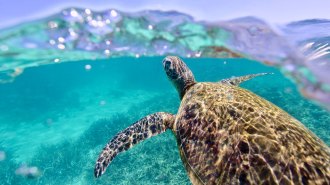 Animals
AnimalsWhy do sea turtles, penguins and sharks sometimes just swim in circles or spirals?
Tracking devices recorded the loops and spirals of 10 marine species. In some cases, scientists have good guesses for why; other times it’s baffling.
By Susan Milius